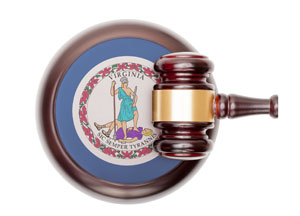Laws requiring voters to show photo identification before their votes can be cast or counted are both politically and legally controversial. Last year, the United States Supreme Court declined to consider a challenge to a Wisconsin law that requires voters to produce a photo ID before they are allowed to vote. The Supreme Court’s inaction left in place a sharply divided federal appeals court decision that rejected a challenge to Wisconsin’s law. A few months later, a different federal appeals court ruled that Texas may not enforce portions of its voter ID law.
A lawsuit challenging Virginia’s voter ID law is underway. The plaintiffs, which include the Democratic party, are relying on expert testimony to support their challenge to the law. The defendants are countering with experts of their own.
The Voter ID Controversy
Proponents of voter ID laws argue that they are needed to combat voter fraud. Opponents of voter ID laws argue that voter suppression is the true motivation underlying the demand that voters produce a photo ID. They claim that voter fraud is a red herring and that disenfranchising voters who are poor, young, or disadvantaged — the groups who are least likely to have a valid photo ID — is the hidden purpose that the laws actually serve. That claim was recently endorsed by a conservative federal judge who has been persuaded by the evidence that photo ID laws have nothing to do with voter fraud and everything to do with politics.
As of January 2016, 36 states have adopted laws that require voters to show some kind of identification at the polls. Not all of those states, however, require a photo ID. The laws in 3 of the 36 states have been struck down by courts.
Election Experts Testify in Virginia
The plaintiffs in the Virginia suit contend that the voter ID law is intended to reduce the number of minority voters. Proponents had argued that the law is needed to curb voter fraud by impersonation, but a state senator testified that the law’s proponents could not point to a single case in which a Virginia voter had been arrested or convicted for impersonating another voter.
An expert testifying on behalf of the parties who are challenging Virginia’s voter ID law told the court that fear of voter fraud is not a rational justification for the law. The expert, Lorraine C. Minnite, is a professor of political science at Rutgers who has studied election fraud and vote suppression.
Minnite testified that the kind of fraud photo ID laws are meant to curtail is so rare that the number of legitimate voters who will be disqualified from casting ballots for lack of acceptable identification far exceeds the number of fraudulent voters who will be prevented from voting. Minnite conceded that voter fraud occurs, but contended that one voter impersonating another — the kind of voter fraud that photo ID laws target — almost never happens.
The defendants, state agencies and officials charged with administering elections in Virginia, countered with the testimony of two experts. Karen L. Owen, an assistant professor of public administration at Reinhardt University in Georgia, suggested that legitimate public policy concerns, rather than voter suppression, may have influenced Virginia’s legislators to enact the voter ID law. Even if voter impersonation is not a serious concern, she said, legislators may have been responding to the public perception that voter fraud is a problem, and enacted the law to increase voter confidence in the integrity of election outcomes.
Daniel J. Palazzolo, a professor of political science at the University of Richmond, agreed that the legislature may have enacted the voter ID law in response to public perceptions. He also suggested that legislators may have been influenced by activist groups that lobbied in favor of the law. Palazzolo testified that he could not rule out prejudice against minority voters as a motivating factor, but contended that there was insufficient evidence to prove that legislators passed the law because they wanted to suppress minority votes.
After all the trial testimony was completed, the presiding judge asked the parties to file written arguments. The last of those arguments is due in court in early April. Whether the judge’s decision will be influenced by the expert testimony presented on behalf of either party will not be known until the judge issues a decision.




